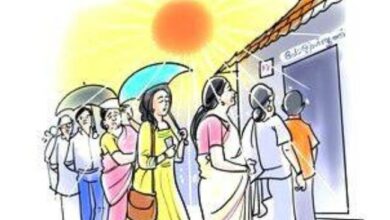When you stop having sex, what happens to your body

Any sexually active individual or couple you know will tell you that dry spells in the bedroom are quite common and natural. It may last a few weeks or months, and there are a variety of reasons why people who have had sex – even regular sex – stop or take a break. It could be due to illness, being overly busy or stressed, a dip or cold period in the relationship, or you’re taking medications that interfere with your libido.
Whatever the reason and the exact duration of abstinence (it is, after all, subjective), not having sex for an extended period can affect your health. Some of the things you may notice if you stop having sex are as follows.
1. Your stress levels may increase
Sexual activity causes the body to produce more endorphins and oxytocin. These are neurotransmitters that help regulate stress, mood, and sleep, as well as hormones. Not having sex may decrease endorphin and oxytocin release in the body, which can raise stress levels. You may also be irritable and have difficulty sleeping. Getting some exercise or a massage may help you increase your endorphin and oxytocin levels during your dry spell.
2. You might have vaginal problems
It may seem strange, but if you are a woman who has stopped having sex after having it regularly for a while, you may notice some unexpected physical changes in your vagina. The vaginal walls may tighten, which is not necessarily a bad thing. However, if you resume having sex after a long break, you may experience vaginal pain, tears, or even bleeding as a result of these stiff muscles. Performing pelvic floor exercises and masturbating during your dry spell may help to reduce the likelihood of this occurring.
3. Your immune system may weaken
Having sex is associated with improved immunity, particularly because studies have shown that those who have sex have higher levels of immunoglobulin A in their bodies. Immunoglobulin A, or IgA, is an antibody that aids in the fight against infections, including viral infections such as the common cold. When you stop having sex, your body’s IgA concentration may decrease. To overcome this problem, you could eat a healthy diet, exercise regularly, and consult a doctor about supplementation.
4. It may hurt your heart health
Regular sex gives your body a hormonal and an aerobic boost. Sexual activity is thought to be a good form of cardio exercise and has been linked to better cardiovascular health. As a result, it is reasonable to believe that discontinuing sex, whether for a short or long period, can hurt your heart health. However, there isn’t enough research to show what kind of effect sex abstinence has on heart health. Abstinence from sex, on the other hand, may not have any negative effects on your heart if you become more active by jogging or going to the gym.
5. Your risk of UTIs and STIs may decrease
Having sex with multiple partners, not having safe or protected sex, and other practices may increase your risk of developing urinary tract infections (UTIs) and sexually transmitted infections (STIs) (STIs). While the risk of UTIs remains high, especially if you use public restrooms, hold your pee for long periods, or do not properly clean your genitals, the same cannot be said for STIs. One of the advantages of your is a lower risk of STIs.






